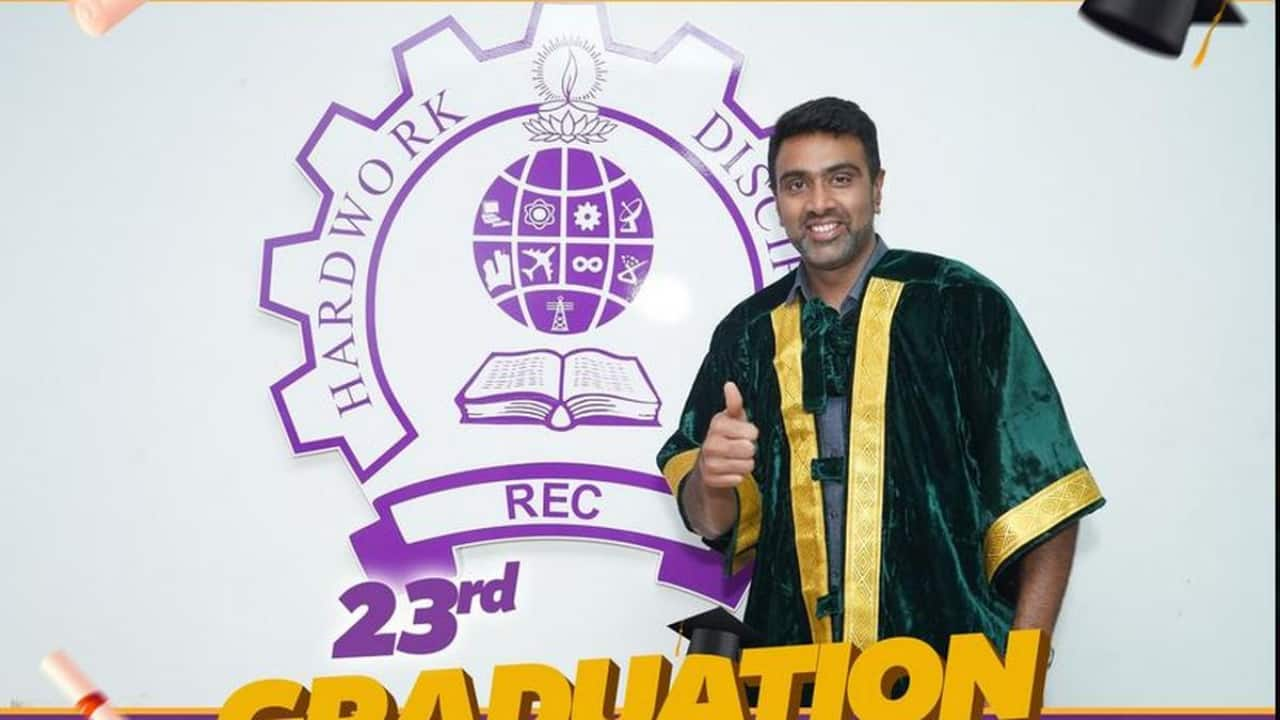 |
|
Ravichandran Ashwin, a prominent Indian cricketer, recently ignited a fervent debate regarding the status of Hindi in India. His comments, delivered during a graduation ceremony at a private engineering college near Chennai, quickly went viral on social media platforms. The crux of the controversy lies in Ashwin's assertion that Hindi is an official language of India, not the national language. This seemingly simple clarification struck a chord with many, highlighting the complex and often sensitive relationship between language and national identity within India's diverse linguistic landscape.
The incident unfolded when Ashwin, addressing the students, inquired about their preferred language for questions: English or Tamil. Both options received enthusiastic responses. However, when he posed the question in Hindi, the audience remained silent. This observation prompted Ashwin's clarifying statement about Hindi's status, a statement that immediately resonated with many, particularly those from non-Hindi speaking regions. The clip of his address spread rapidly, becoming a focal point for discussions about linguistic diversity, regional identities, and the role of language in national unity and integration. The debate was not merely a linguistic one; it tapped into deeper socio-political currents within the Indian context.
Ashwin's comments serve as a potent reminder of the linguistic diversity that characterizes India. With numerous languages and dialects spoken across the country, the issue of a national language has been a recurring point of contention. While Hindi holds significant prominence as an official language, it is far from universally understood or accepted. Many perceive the imposition of Hindi as a threat to their cultural heritage and regional identity. Therefore, Ashwin's simple statement, while seemingly innocuous, resonated deeply with individuals and communities who feel marginalized or overlooked in the national narrative dominated by Hindi. The ensuing discussions highlight the need for a nuanced and inclusive approach to language policy in a country as diverse as India.
Beyond the language debate, Ashwin's address also touched upon other aspects of his life and career. He shared insights from his engineering background and his experiences as a cricketer, emphasizing the importance of perseverance and self-belief. His comments on captaincy, specifically his attitude towards challenges, offered an inspirational message for the graduating students. The inclusion of these elements within his speech added a layer of complexity to the narrative. It was not simply a statement about language but also a broader reflection on achievement, perseverance, and overcoming obstacles. This made the overall impact of his message even more impactful, spreading beyond the confines of the language debate itself.
The controversy sparked by Ashwin's remarks underscores the ongoing challenges India faces in balancing national unity with the preservation of diverse regional identities. The issue of language transcends mere communication; it is deeply intertwined with cultural heritage, social identity, and political power dynamics. The debate is not simply about which language should be dominant but about the rights and recognition of all languages within the national framework. Ashwin's unassuming statement inadvertently brought these complex issues to the forefront, fostering a much-needed conversation about the importance of inclusivity and respect for linguistic diversity in India. This incident highlights the powerful impact a single comment can have on shaping public discourse and bringing sensitive issues into the national spotlight.
The incident also highlights the role of social media in amplifying and shaping public opinion. The rapid spread of Ashwin's comments across social media platforms showcased the power of digital platforms in disseminating information and shaping public discourse. The comments section of many posts relating to this incident became battlegrounds of opinion, with diverse viewpoints colliding, and discussions ranging from the political to the personal. This widespread online discussion underscores the importance of responsible social media usage and the need for thoughtful consideration of the potential consequences of online interactions. The incident serves as a powerful reminder of how social media can both empower and potentially exacerbate existing tensions within society.
In conclusion, Ravichandran Ashwin's comments on the status of Hindi initiated a far-reaching discussion on language, identity, and national unity in India. His seemingly simple clarification ignited a complex debate, exposing the deep-seated sentiments and concerns surrounding linguistic diversity and the place of Hindi in a multi-lingual nation. While intended as a straightforward observation, his words became a catalyst for a much-needed conversation about inclusivity, respect, and the preservation of cultural heritage in a nation rich in its linguistic tapestry. The ensuing discussions, both online and offline, highlighted the significance of language policy in fostering unity while respecting the richness of regional identities within India.
Source: 'Hindi not our national language': Ravichandran Ashwin adds fuel to language debate
